Dirty air increases risk of respiratory problems that can be fatal for coronavirus patients.


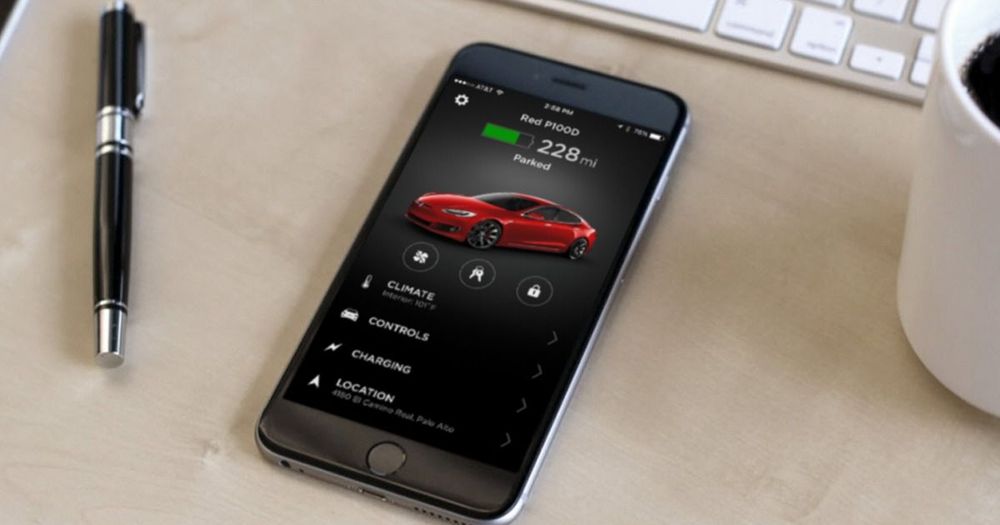
Tesla’s mobile app is one of the key parts of the Tesla ownership experience, and yet its security is lacking an important feature — two-factor authentication.
According to CEO Elon Musk, this will change in the near future.
When asked on Twitter whether there are any updates regarding two-factor authentication for the app, Musk said it’s “coming soon” (via Teslarati).
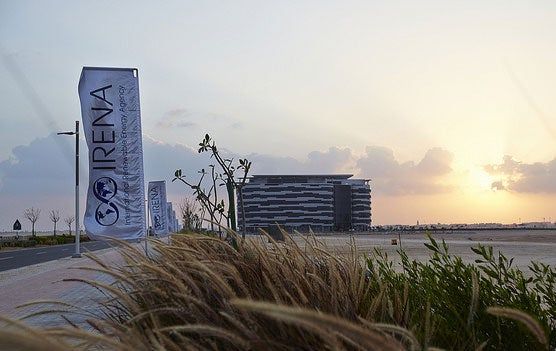
The economic impact of the coronavirus pandemic has governments struggling with how to restart a global economy that has come to a grinding halt. Some short term needs have to be addressed as soon as possible — avoiding starvation, extending unemployment benefits, and arranging for emergency healthcare for those infected. But even as the world faces such daunting tasks, decisions made today will have enormous consequences for the future. While the emergency today is great, a much bigger emergency waits just around the corner as the Earth continues to overheat.
Governments in thrall to fossil fuel interests, such as the United States, see the virus as a chance to roll back advances in renewable energy. After all, the oil and gas industries provide for 10,000,000 jobs around the world. Surely those jobs must be protected, right?
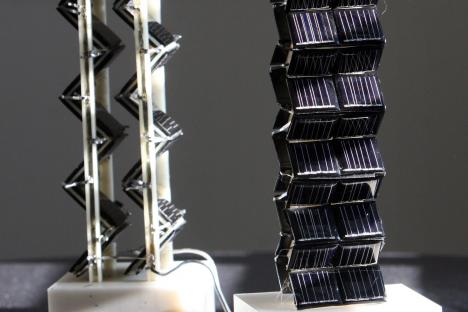
Circa 2012 Now, a team of MIT researchers has come up with a very different approach: building cubes or towers that extend the solar cells upward in three-dimensional configurations. Amazingly, the results from the structures they’ve tested show power output ranging from double to more than 20 times that of fixed flat panels with the same base area.
Innovative 3D designs from an MIT team can more than double the solar power generated from a given area.
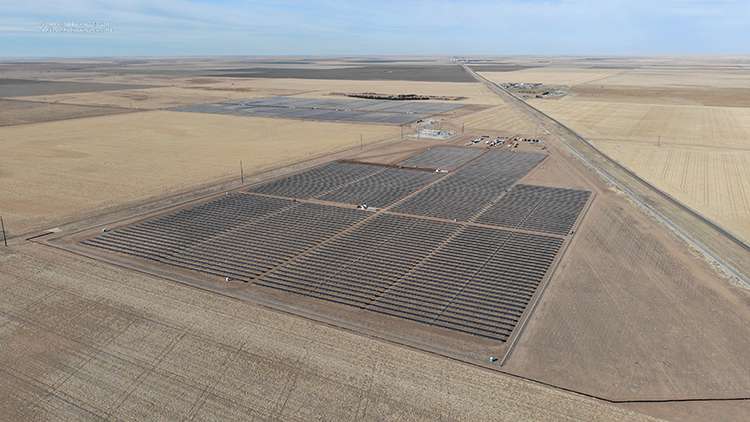
Sunflower Electric Power Corp.
JOHNSON CITY – Sunflower Electric Power Corp. and Lightsource BP have announced that the Johnson Corner Solar Project entered commercial operation on April 7. The $37 million project, which was financed and constructed by Lightsource BP, is located approximately 2 miles southwest of Johnson City in Stanton County.
Lightsource BP, a global leader in the development, financing and management of utility-scale solar energy projects, is the project owner and operator. All the energy from the project is being sold under a 25-year power purchase agreement (PPA) to Sunflower, a nonprofit electric utility providing wholesale generation and transmission services to six member-owners serving in central and western Kansas. The National Renewables Cooperative Organization (NRCO) played a key role in helping Sunflower develop this important project for the public power community.

Last March, Chinese researchers announced an ingenious and potentially devastating attack against one of America’s most prized technological assets—a Tesla electric car.
The team, from the security lab of the Chinese tech giant Tencent, demonstrated several ways to fool the AI algorithms on Tesla’s car. By subtly altering the data fed to the car’s sensors, the researchers were able to bamboozle and bewilder the artificial intelligence that runs the vehicle.
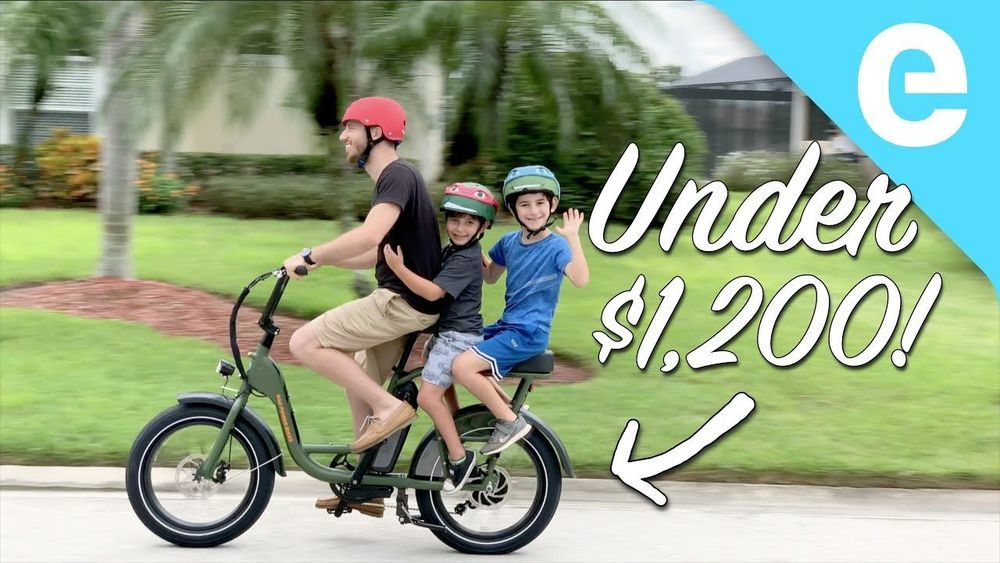
Tesla Cybertruck is going to be “able to float for a while,” says CEO Elon Musk, who apparently can’t wait to bring the electric pickup truck to production.
For a while now, Elon Musk has cautiously boasted about the ability of Tesla vehicles to float, or even “act as a boat” for short periods of time.
A few years ago, we posted about a Tesla Model S driving (or swimming) through a flooded tunnel. Musk commented:
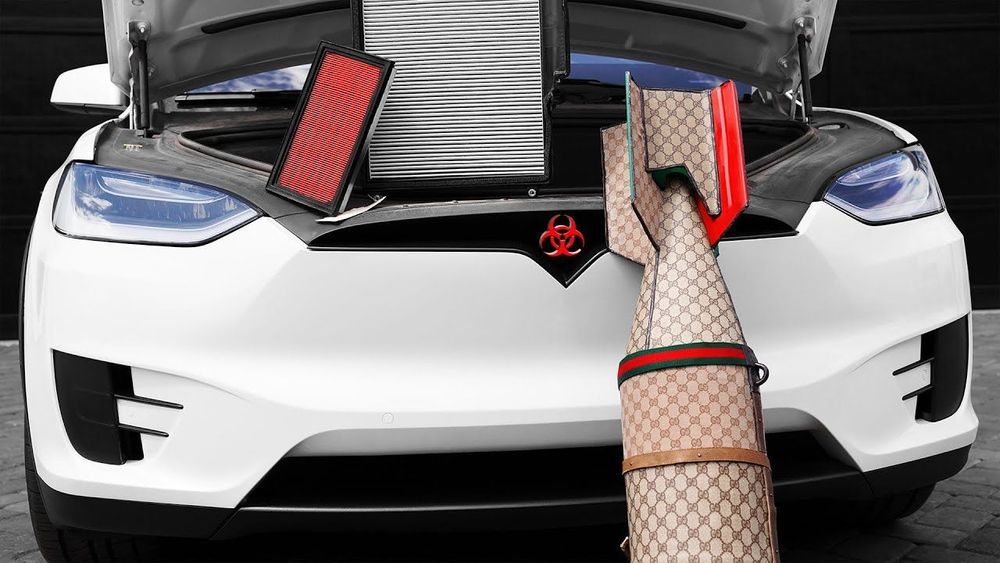
The Tesla Model S and Model X come standard with Bioweapon Defense Mode, which is possible due to a massive HEPA filter. If you haven’t seen it or replaced it, you’re likely to be shocked by its size. According to Tesla, the filter is “100 times more effective than premium automotive filters.” It removes “at least 99.97% of fine particulate matter and gaseous pollutants, as well as bacteria, viruses, pollen, and mold spores.” Is it really necessary, though?
There’s a pretty good chance that going out in your car is not going to make you highly susceptible to contracting the coronavirus, but we’re not doctors. At this point, it seems even doctors and scientists aren’t 100-percent sure about many details related to this new disease. We can tell you that we have seen many people walking alone outside with masks and gloves on, and just about as many people driving down the road with their windows closed and masks and gloves on.
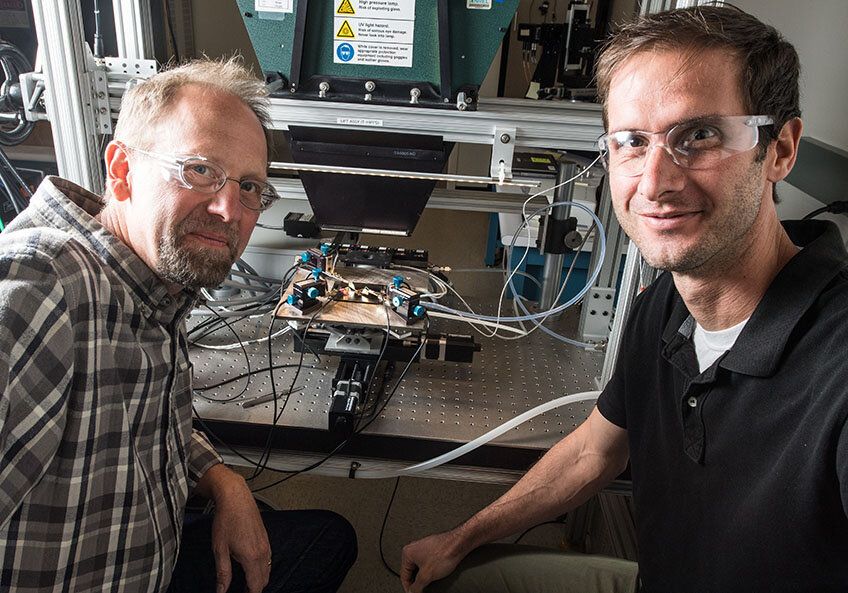
Scientists at the National Renewable Energy Laboratory (NREL) have fabricated a solar cell with an efficiency of nearly 50%.
The six-junction solar cell now holds the world record for the highest solar conversion efficiency at 47.1%, which was measured under concentrated illumination. A variation of the same cell also set the efficiency record under one-sun illumination at 39.2%.
“This device really demonstrates the extraordinary potential of multijunction solar cells,” said John Geisz, a principal scientist in the High-Efficiency Crystalline Photovoltaics Group at NREL and lead author of a new paper on the record-setting cell.

Algae biofuel certainly faces an uphill battle these days, what with the global oil price crash and competition from electric vehicles. Nevertheless, there may be a glimmer of hope for algae biofuel fans, in the form of an ultra-fast 3D printer housed in a California laboratory. In an interesting sustainability twofer, the same machine might also spit out an assist for the world’s ailing coral reefs.